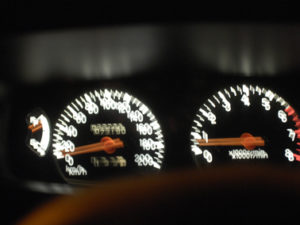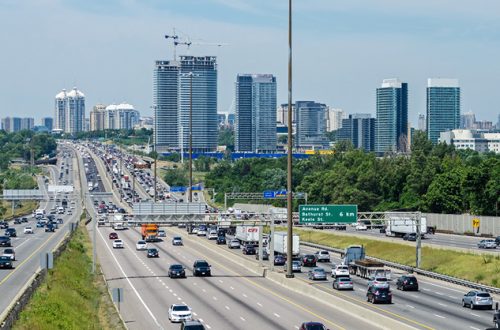Driving when you’re impaired by alcohol, drugs or fatigue can have serious human and financial consequences.
Even if you think you’re OK to drive—it just isn’t worth the risk!
A few statistics
 Impaired driving awareness campaigns have increased over the years, and statistics show that this effort has paid off. But with cannabis legalization, these stats might change, and public perceptions will need to be addressed.
Impaired driving awareness campaigns have increased over the years, and statistics show that this effort has paid off. But with cannabis legalization, these stats might change, and public perceptions will need to be addressed.
The Mothers Against Drunk Driving (MADD) organization works tirelessly to remind people that alcohol and drugs are the leading cause of criminal deaths in Canada.
According to MADD, road accidents were responsible for 2,546 deaths in 2012. Of these fatalities, 1,497 (58,8%) involved drivers with drugs or alcohol in their systems.
With the legalisation of cannabis in Canada, MADD welcomes the proposed federal impaired driving legislation which aims to improve roadside screening and introduce new charges for drugged driving.
The human and financial cost
Impaired related accidents can cause considerable property damage. Further it can cause irreparable harm to both people and their families. But if you drive while impaired, the impacts don’t stop there.
Your driver’s licence will be immediately suspended. Then you may need to pay the cost of vehicle towing and storage.
On top of having your licence suspended for a year, there’s a minimum fine of $1,000.
Add to that the legal fees, extra insurance impacts and in some cases the cost of installing an alcohol interlock device.
An impaired driving conviction means you’ll pay more for car insurance. In the first year after a conviction, you could be charged 2 or 3 times the original premium and the price will remain high for several years.
It’s also worth noting that entering the United States might be more complicated with an impaired driving conviction.
True or false – beware of myths about alcohol
One drink an hour keeps you under the limit of 80 mg/100 ml (or 0.08%)
False
For this to be true, you’d need to metabolize alcohol faster than the average person. A bottle of 5% beer, a glass of wine or a shot of spirits will produce a blood-alcohol level of about 25 mg/100 ml for a man and about 35 mg/100 ml for a woman. Most people can metabolize about 15 mg/100 ml of alcohol per hour.2 Also, your blood alcohol will continue to increase after your last drink, reaching its peak about an hour later.
There’s nothing you can do to sober up faster
True
You’ve heard all the tricks—take a cold shower, drink strong coffee, have an energy drink, run or dance around—but in reality, there’s nothing you can do to speed up how fast your body metabolizes alcohol.
Also, eating food doesn’t help your body digest alcohol more quickly. In fact, food just slows down the absorption of alcohol in your system.
The 0.08% alcohol limit doesn’t cover everything
True
Even if your blood-alcohol level is below 80 mg/100 ml (or 0.08%), your driving could still be impaired, especially if you’re tired, stressed, sick, or taking prescription medication.
The police can still arrest drivers with a blood-alcohol level below the legal limit if they show obvious signs of being impaired. Roadside coordination tests have proven to be a good indicator of impairment.
Think prevention
To avoid the risks of drinking and driving, it’s a great idea to have a designated driver if you’re planning a party or an evening out with friends.
What can parents do?
- Make sure your children understand the dangers of driving under the influence of alcohol or drugs. You can also help them avoid the risks by offering to pick them up after an evening out.
- Make sure your children have money to take a taxi home.
- Remind your children never to get into a car if the driver has been drinking or taking drugs.
What can hosts do?
- At the risk of looking like a party-pooper, ask your guests if they have a designated driver. If you think one of your guests isn’t fit to drive home, offer to pay for a taxi or ask them to spend the night.
- Make sure you also offer food and non-alcoholic drinks.
In case a car accident does happen
Should you be involved in a car accident despite all of this, you need to have comprehensive car insurance to cover the damages to your vehicle, and that caused to others or their car (if applicable). Find the right coverage for you with The Personal’s car insurance for groups.
Want to find out more? Visit the Drug-Impaired Driving Learning Centre
To find out more, call 1-888-476-8737. Or visit thepersonal.com/https://ospe.on.ca/wp-content/uploads/2024/10/academy-banner-7.png.
Note: This article is being provided by OSPE on behalf of The Personal which has a group sponsorship agreement with regards to home and auto insurance for our Professional Engineers, Engineering Graduates and Engineering Students.nThe Personal refers to The Personal General Insurance Inc. in Quebec and The Personal Insurance Company in all other provinces and territories of Canada.nThe information and advice in this article are provided for informational purposes only. The Personal shall not be liable for any damages arising from any reliance upon such information or advice. The Personal recommends using caution and consulting an expert for comprehensive, expert advice.





Leave a Comment